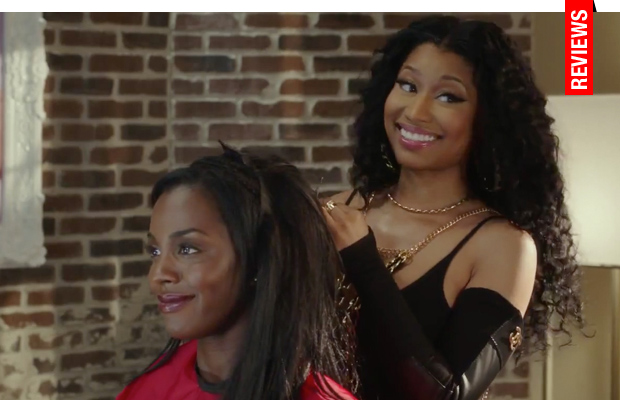Southside with You: Lee Instills Relevance to Third Franchise Chapter
Calvin (Ice Cube) is facing a difficult new chapter with his barbershop in Southside, Chicago. After having partnered with Angie (Regina Hall), who now runs a section of the shop for women, Calvin is secretly eyeing property on the north side of the city due to the increasing gang violence claiming the lives of many innocent people on the very street where his business is located. But a lot of folks have come to depend on Calvin and his shop, including long time employee Eddie (Cedric the Entertainer), best friend Rashad (Common) and his wife Terri (Eve). Coming up with the idea to ask the local ‘shot callers’ (i.e., the gang leaders who come to Calvin’s for service) to agree to a 48 hour cease fire, Calvin and Angie’s employees engage in a non-stop weekend of free service for anyone as a way to prove quelling the violence is a possibility.
Most of the original cast members are predominantly featured here (except for Michael Ealy), though some, such as resident white guy Troy Garity and politician Sean Patrick Thomas, are on the periphery. They’ve been replaced with some scene stealers (no, not Nicki Minaj, here playing a potential homewrecker who has a personality just like Nicki Minaj), particularly J.B. Smoove, as multifaceted entrepreneur One Stop, Utkarsh Ambudkar (who gets to parlay some more racially barbed instances into inoffensive talking points), and, best of all, Lamorne Morris as the shop’s talkative nerd.
Rapper Tyga appears briefly as a (rather forgiving) gang leader. Since economic necessity has made the barbershop a co-ed environment, we get the talented Regina Hall as Cube’s new business partner (though considering her comic talents, she’s a bit underutilized), while a striking Margot Bingham gets a fair share of feminist critique. The regulars, unfortunately, often seem the least impressive, with Ice Cube and new bestie played by Common relegated to mouthpieces (though more effectively than the unimpressive characterizations saved for their love interests, Jazsmin Lewis and a lackluster Eve). But returning laugh factories Deon Cole and Cedric the Entertainer (whose old man drag seems less distracting this time around) each snag a handful of comic moments.
The film’s strong suit is its ability to churn comic ripples around its heavy-handedness, where discussions addressing the objectification of women stride confidently to the other side of the house where its women characters engage in similar behavior of gender commodification as regards the opposite sex. Once again, the franchise aims to highlight the safe space the barber (or beauty) shop represents for the black community, but its torchbearers face an uncertain future, unable to combat a new generation’s merciless violence toward others, gunning down gang members along with countless innocent bystanders on the daily. The progressive attitudes on display are greatly enhanced by a screenplay co-written by Tracy Oliver and Kenya Barris (“Black-ish”). Director Malcolm D. Lee’s films aren’t always so all-encompassing, as evidenced by the troubling religious certitudes of his sequel The Best Man Holiday (2013) or, worse, the treatment of some of his female characters, such as Mo’Nique in Welcome Home Roscoe Jenkins (2008).
Instead of drawing such clear cut distinctions between black and white, The Next Cut is clearly about a working class neighborhood in peril, exemplifying the power of community coming together to combat social ills. One can’t rightly classify this latest segment of Barbershop as an ‘urban comedy,’ or whatever such a label means. Rather, as Ice Cube’s Calvin professes in one of several motivational moments, one can’t expect strangers to swoop in to solve problems they aren’t aware of, but it is possible to attempt to solve the issues in one’s own backyard, supposing there’s some likeminded people fighting the same cause. Even with the film’s sometimes uncomfortable corny moments, it just as easily depicts the frustration and helplessness of raising kids in the very system where they’re introduced and indoctrinated by gang mentalities.
Barbershop is taking on the same topical agenda as Spike Lee’s much more eloquent Chi-raq, an ambitious update of Lysistrata, which secured a limited release at the tail end of 2015 before making an international bow at the 2016 Berlin International Film Festival. Spike Lee’s joint professed to be a cinematic venture aiming to save lives as it highlighted the unnecessary violence rampaging certain areas of the Windy City. While Malcolm D. Lee’s film doesn’t play in the same league, it’s also impervious to disparagement or easy dismissal, its most worthwhile, endearing moments hiding in plain sight, with a father trying to do what’s best to protect his son.
★★½/☆☆☆☆☆
